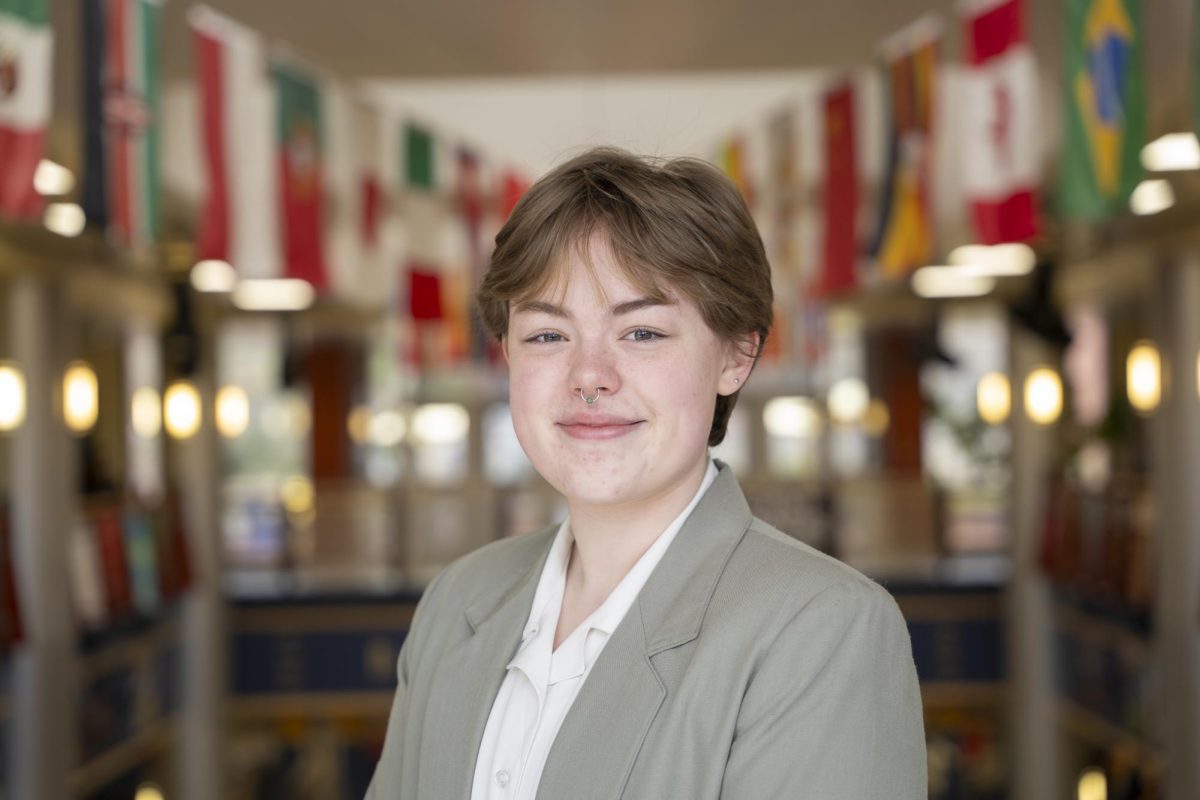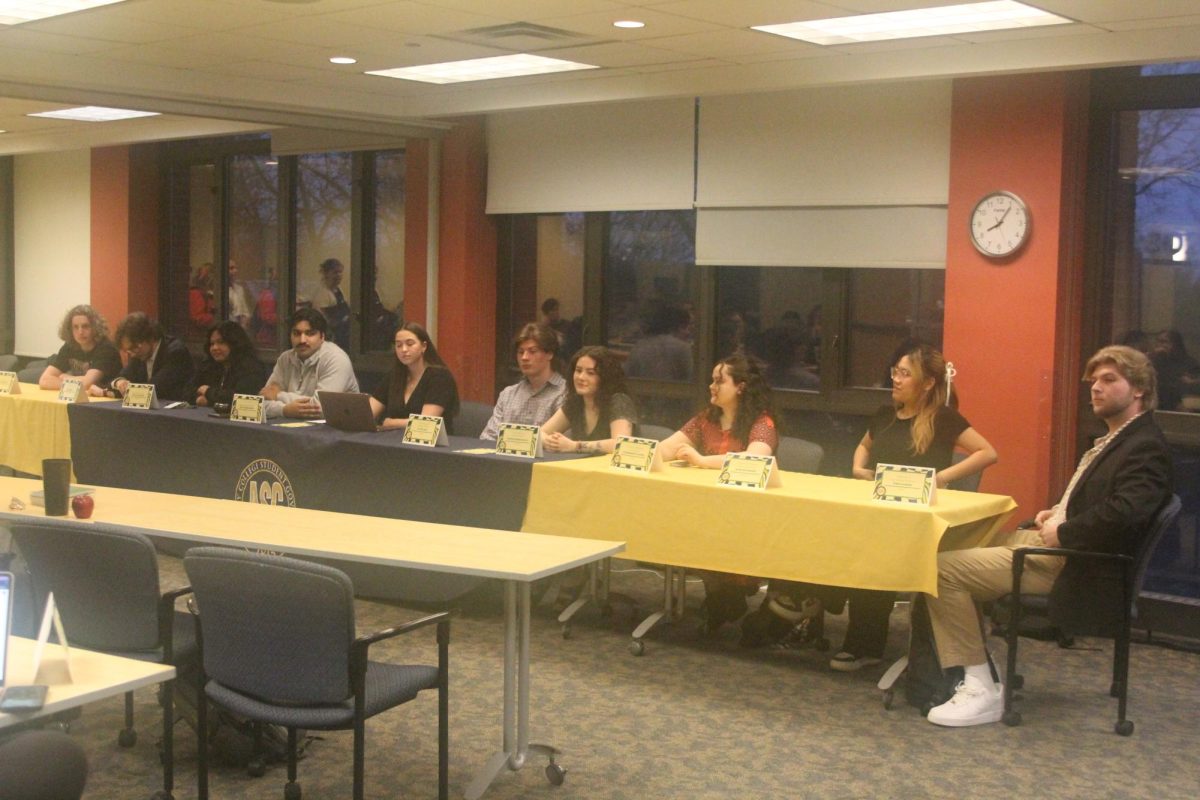The act of eating is an everyday, often mindless, activity for most Americans. Michael Pollan, best-selling author of “The Omnivore’s Dilemma” and “In Defense of Food,” actively challenges that passive, consumerist mindset.

On Thursday at 6 p.m. in Shafer Auditorium, Michael Pollan will present a multimedia lecture entitled, “The Sunfood Agenda” as part of Allegheny’s Year of Social Change. Pollan will address the issue of cheap food as a result of big industrial agriculture and the consequences of that shift in terms of the energy, climate and health care crises being faced by today’s society.
Assistant Professor of Communication Arts Emily Yochim is one of the faculty organizers of the Year of Social Change, along with Associate Professor Ishita Sinha Roy.
“What I really like about Pollan’s work is that he addresses something we all do every day: the act of eating,” Yochim said. “He helps us understand how the choices we make are tied up with larger social and political issues. He shows how our everyday issues have larger implications.”
Along with the significance of small, everyday choices, Yochim also encourages students to consider how they can make a larger impact on society in light of Pollan’s lecture.
“When Obama was first elected, Pollan wrote a letter to him about the importance of sustainability,” Yochim said. “His letter is a big reason behind why Obama now has an organic garden. When students listen to Pollan’s lecture, I’d encourage them to think about how they can get involved on a larger, more political scale.”
Erin Sweeney, ’10, who is introducing Pollan at Thursday’s lecture, is a Davies Leader whose project is based at the Meadville Market House.
“I was first introduced to his work in a freshman seminar,” Sweeney said. “We read ‘The Omnivore’s Dilemma,’ and it was the first time I really thought about the impact of agribusiness in the United States, and the detrimental effects on local small-scale farms. I learned about the health consequences of eating food that is full of corn and soy products not grown organically.
Having a background knowledge of that inspired me to look at what was going on in Meadville.”
Sweeney wanted to be a part of the solution, so she took what she had learned and applied it on a local scale.
“I’ve been there [at the Market House] for almost a year,” Sweeney said. “I’ve been working to help develop Project ONE [Offering Nutrition to Everyone].
The main goal of the project is to increase access to local healthy foods to all residents of Meadville, especially low-income residents.”
Last summer, Sweeney helped set up a Community-Supported Agricultural program (CSA), which directly connects local farmers with Meadville residents. There are currently 17 CSA members who provide produce for ten different local senior residents.
Eric Winter, ’10, an environmental science major who has read many of Pollan’s books, believes that Pollan, along with being a good writer, found an ideal time to impart his theories about environmental sustainability to the general public.
“Pollan’s ideas aren’t new,” Winter said. “The ideas he works with have been talked about for a long time. But he is a phenomenal journalist and he’s presenting his ideas at a good time, in an easily understood way.”
Winter studied abroad at the Arava Institute in Israel, where he took a sustainable agriculture class that got him thinking about the fact that Americans expect to have every kind of produce in all seasons, which is a fairly new concept.
“Within the last 30 years, we’ve really lost track of what our food calendar is,” Winter said. “What if we could really get into appreciating foods when they are supposed to be grown in our region based on our local food calendar?”
Like many of Pollan’s readers, Winter appreciates the lack of a preachy tone in books such as “In Defense of Food.”
“I like the fact that he’s not against the consumption of meat like most environmentalists, who either feel bad about eating meat or just don’t,” Winter said. “Pollan’s view is more that it’s okay to eat quality local meat, but eat less and enjoy it.”
Students have been heavily involved with preparing for Pollan’s visit to campus.
“The Year of Social Change ambassadors are in charge of the commitment cards, ushering the events, escorting guests around campus and making up interview questions,” said Sarah Gentile, ’10, Year of Social Change ambassador. “I’m glad Michael Pollan was invited to be a part of the Year of Social Change. I think they’ve done a very good job of getting speakers from a variety of viewpoints and interests.”
Erin Sweeney emphasized that Pollan’s lecture will focus on how everyone can make a difference when it comes to facilitating major changes on a personal, local level.
“Whoever goes to the lecture will realize that yes, we’re doing these small things, and they may not seem huge,” Sweeney said. “But in the grand scheme, every single time people buy locally, it’s one more way to say ‘no’ to larger corporations that are trying to take over agriculture.”






